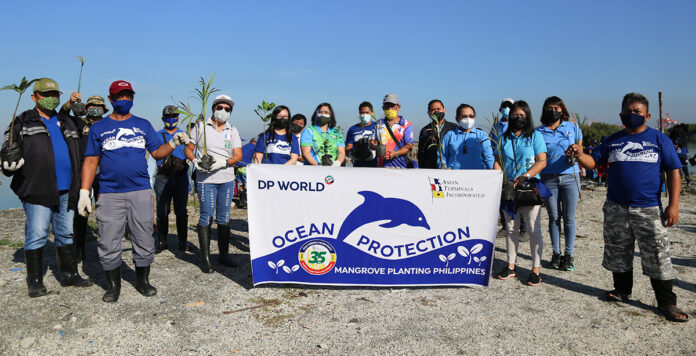
-
Asian Terminals Inc. planted over 3,000 saplings along the beachfront of Baseco, Manila and the river basin of San Juan, Batangas to support environmental protection and sustainable development
-
Employees, community leaders and volunteers planted endemic mangrove species, particularly nilad, in areas spanning over three hectares
Port operator Asian Terminals Inc. (ATI) recently planted thousands of mangrove trees in neighboring coastal communities as part of its commitment to promote environmental protection and sustainable development.
In partnership with the Department of Environment and Natural Resources and in support of its foreign equity partner DP World’s ocean protection program, ATI initially planted over 3,000 saplings along the beachfront of Baseco, Manila and the river basin of San Juan, Batangas.
ATI employees, community leaders and volunteers planted endemic mangrove species, particularly nilad (Scyphiphorahydrophyllacea), in areas spanning over three hectares while following stringent health and safety protocols, the port operator said in a statement.
Port operators under the jurisdiction of the Philippine Ports Authority (PPA) are also required to plant trees or mangroves within their respective business locations to help address climate change.
PPA early this year issued PPA Administrative Order 14-2020 requiring the planting of trees or mangroves for the issuance of accreditation, certificate of registration, appointment, or award/renewal/extension of contract. Port terminal operators, in particular, are required to plant 100,000 seedlings on top of the initial planting of 1,000 seedlings.
READ: Want a PPA certificate or contract? Plant a tree
Apart from planting trees, ATI said it supports the government-led rehabilitation of Manila Bay, La Mesa Watershed protection, community sanitation programs, battery recycling, and other environmental initiatives anchored on the United Nations Sustainable Development Goals.




